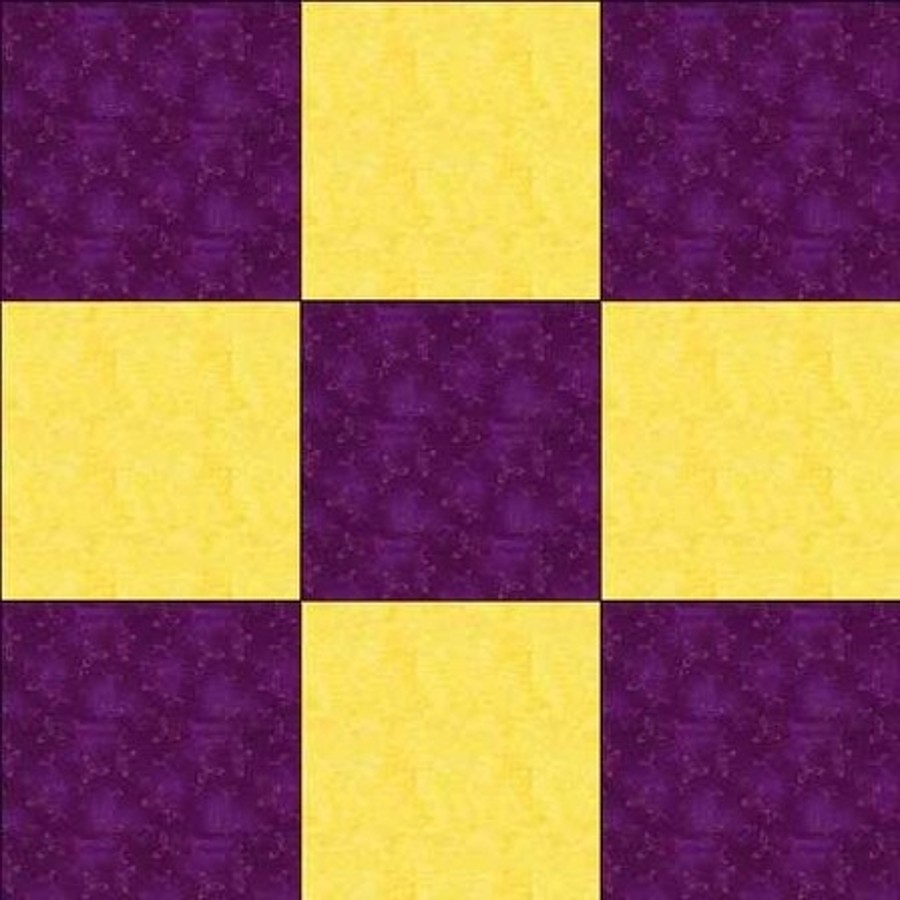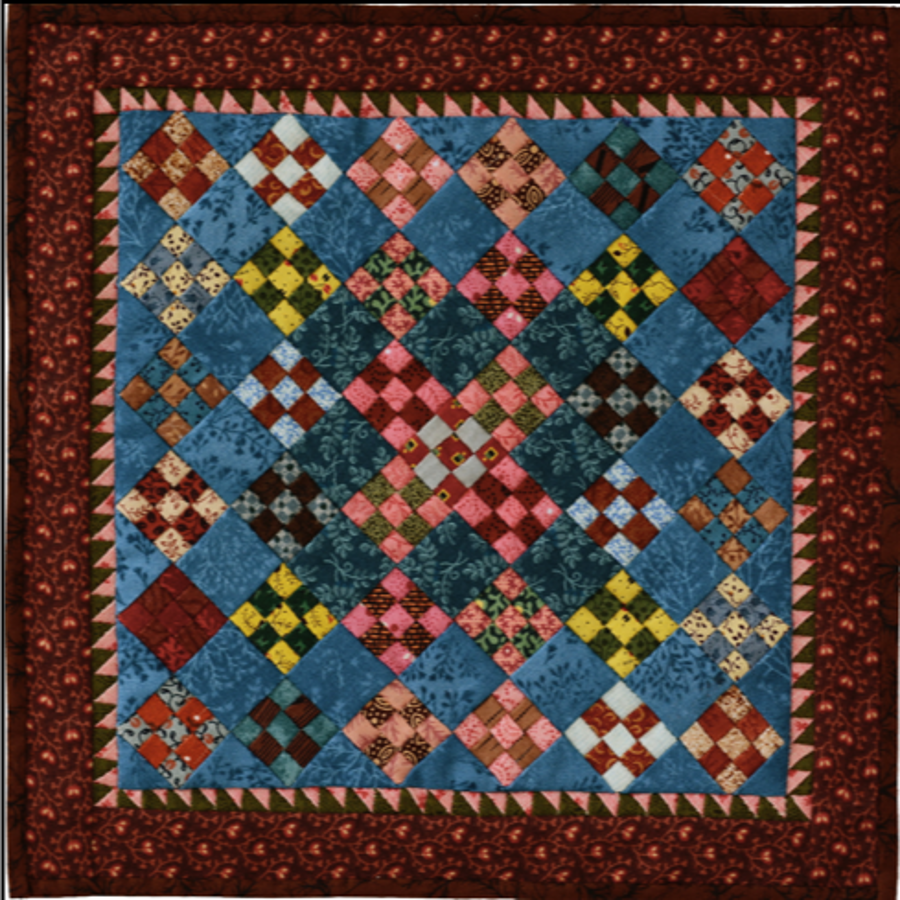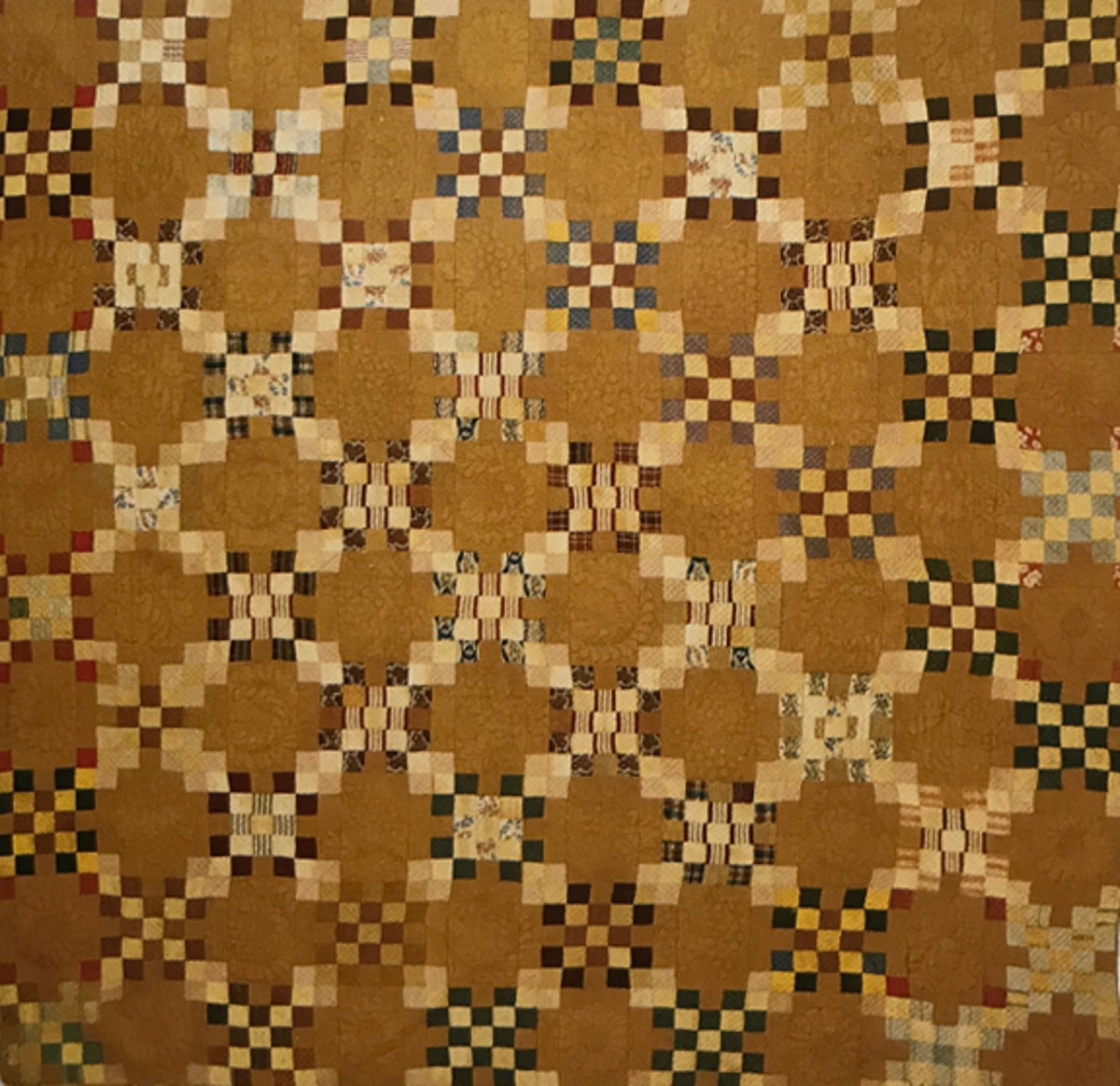 Basic Nine Patch Block
Basic Nine Patch Block
Nine Patch piecing is one of the earliest forms of patchwork. It involves joining nine squares of fabric to form a larger square. In it's simplest form, the block is constructed of nine plain squares of fabric. When the block was published in the Ladies Home Journalin 1896 it was called a ‘Plain Block’. The miniature quilt above and the two diagrams are variations involving joining blocks with or without alternating plain squares, and setting squares either “on point” or “square.” The variations are endless. A quilt top made of Nine Patch blocks, whether basic or complex, may vary from the very simple to extremely complex, both in the geometry as well as the play of colors.
 The Nine Patch can also be used to create complex designs
The Nine Patch can also be used to create complex designs
Nine Patch blocks form the basis of the alternating blocks in the Dutton Quilt (pictured below), dating c. 1862-70 and in the collection of the Waterford Foundation. Made by members of the Sutton-Steer families, the ground fabric was made from a silk wedding dress worn originally by Emma Schooley in 1838 and by her daughter in 1862.
 The Dutton Nine Patch quilt from the Waterford Foundation
The Dutton Nine Patch quilt from the Waterford Foundation
 The Nine Patch can also be used to create complex designs
The Nine Patch can also be used to create complex designs The Dutton Nine Patch quilt from the Waterford Foundation
The Dutton Nine Patch quilt from the Waterford Foundation